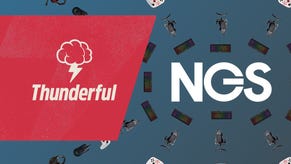German researchers propose treatment for gaming addiction
Clinical trial of 143 finds promising remission rate using cognitive behavioral therapy
A German clinical trial has found a promising potential treatment for video game and internet addiction focused on cognitive behavioral therapy (CBT) rather than psychiatric drugs.
The study examined 143 men with an average age of 26 who self-reported suffering primarily from internet addiction, psychosocial functioning, and depression. The group was split in half with half receiving the treatment, which consisted of an initial "partial abstinence" from gaming and the internet, but focused on both group therapy sessions and individual sessions to examine the patient's relation to internet and gaming use.
Rather than aim for total abstinence from internet and gaming activities, the study instead focused on an awareness of the behaviors that led to addiction and an adjustment of their relationship with the technology.
"It usually starts with a thorough inventory of the patient's characteristics that are contributing to the development and maintenance of the gaming disorder," said study co-author Kai W. Müller to Vice. "The researchers started by educating the patients on the mechanism and effects of video game addiction. Patients kept a personal diary of the triggers that caused them to play games, often focusing on how they felt just before a marathon session, then learned how to take that energy and redirect it.
"In a third step, modification of the relevant characteristics is the crucial aim of the intervention. This can for instance be enhancing the patient's resilience towards stressful events, or his or her social skills, understanding of his or her emotional responses and simultaneously developing alternative explanations and reactions."
It's worth noting that some issues with the study include its focus on internet addiction (with gaming addiction included, but not the primary focus) and its short-term nature, as it notes in the conclusion that long-term studies using the same treatment methods are also needed. Another large gap is in regards to the fact that the study's entire sample size was made of men.
"Women suffering from internet-related disorders indeed do not find their way into the specific, addiction-related, health care system but rather seem to seek other therapeutic help because of other comorbid disorders that are perceived as the main problem," Müller said. "We are currently investigating this phenomenon in a different research project."







.jpg?width=291&height=164&fit=crop&quality=80&format=jpg&auto=webp)

